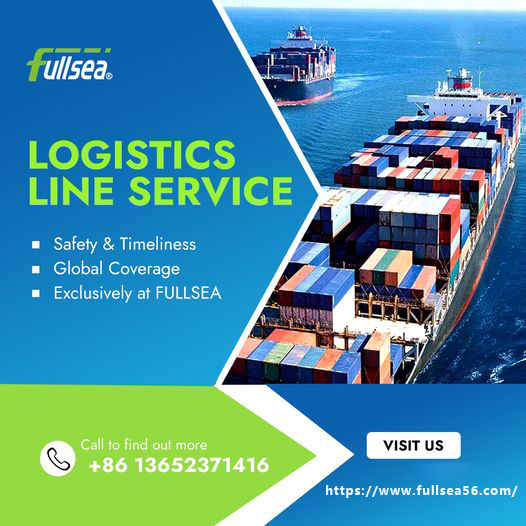Comprehensive Guide to Air and Ocean Freight Forwarding Freight
In today’s interconnected world, international trade has become the backbone of global economies. Businesses of all sizes—from small eCommerce sellers to multinational corporations—rely heavily on efficient shipping and logistics systems. Among these systems, air and ocean freight forwarding freight plays a crucial role in ensuring goods move smoothly across borders.
Choosing between air freight and ocean freight is not always straightforward. Each method comes with unique advantages, cost considerations, and suitability for different types of cargo. Partnering with a professional freight forwarder can make a world of difference, allowing companies to optimize logistics, save costs, and meet delivery deadlines consistently.
This comprehensive guide will walk you through everything you need to know about air and ocean freight forwarding freight—from its definition, benefits, and cost structures to how businesses can choose the best service provider. By the end, you will have practical insights that can help you make smarter logistics decisions for your international trade operations.
What is Air and Ocean Freight Forwarding Freight?
Freight forwarding is the process of organizing shipments for individuals or companies to move goods from the manufacturer or producer to a market, customer, or distribution center. Professional freight forwarders act as intermediaries between shippers and transportation services, ensuring that cargo is transported efficiently, cost-effectively, and in compliance with international regulations.
When it comes to air and ocean freight forwarding freight, companies have two major modes of transportation:
-
Air Freight – Ideal for high-value, time-sensitive, or perishable cargo that needs to reach its destination quickly.
-
Ocean Freight – Best suited for large, bulky shipments where cost-effectiveness is more important than speed.
A skilled freight forwarder helps businesses decide whether to use air, ocean, or a combination of both (multi-modal shipping), depending on budget, timelines, and cargo type.
Why Businesses Need Professional Freight Forwarders
International shipping can be complex, with numerous variables including customs regulations, tariffs, documentation, and potential risks in transit. Professional freight forwarders simplify this process by handling logistics on behalf of businesses.
Key benefits of using air and ocean freight forwarding freight experts include:
-
Customs Clearance Expertise – Forwarders know how to prepare and submit required documents, minimizing delays at ports and airports.
-
Optimized Shipping Routes – They choose the most efficient routes to reduce both time and costs.
-
Consolidation Services – By consolidating shipments, businesses can save money and ship smaller loads without paying full container rates.
-
Risk Management – Insurance and cargo protection services provide peace of mind against unexpected events.
-
Real-Time Tracking – Most forwarders offer digital tracking systems, ensuring visibility throughout the supply chain.
Air Freight vs Ocean Freight: Key Differences
When planning international shipping, businesses must weigh the trade-offs between air and ocean transport.
-
Cost: Air freight is more expensive, but faster. Ocean freight is cost-effective for large shipments.
-
Speed: Air freight usually takes 2–7 days internationally, while ocean freight may take 20–40 days.
-
Cargo Type: Perishable goods, electronics, and high-value items benefit from air transport, while machinery, raw materials, and bulk goods are better suited for sea.
-
Environmental Impact: Ocean freight generally has a lower carbon footprint per ton of cargo compared to air.
Understanding these differences helps businesses select the right method of air and ocean freight forwarding freight based on their priorities.
How to Reduce Freight Costs
Shipping internationally is one of the largest expenses for exporters and importers. Fortunately, there are strategies to optimize costs:
-
Book Early – Rates often increase with last-minute bookings.
-
Leverage Consolidation – Share container space with other shipments to save costs.
-
Work with Multiple Carriers – Forwarders with wide networks can offer competitive pricing.
-
Optimize Packaging – Reducing shipment size and weight can significantly lower costs.
-
Use Technology – Real-time tracking and AI-based route planning can reduce inefficiencies.
By working closely with freight forwarders, businesses can find a balance between speed, cost, and reliability.
How to Choose the Right Freight Forwarding Partner
Not all freight forwarders are equal. Selecting the right partner for air and ocean freight forwarding freight requires careful evaluation:
-
Industry Certifications: Look for partners with IATA, FIATA, or other global certifications.
-
Reputation: Research reviews, case studies, and client testimonials.
-
Network Strength: Ensure they have established connections with airlines, shipping lines, and local agents.
-
Customer Service: Quick response times and 24/7 support can make a big difference.
-
Technology Tools: Digital platforms for booking, tracking, and reporting add convenience.
Trends in Global Freight Forwarding
-
Digital Transformation – Many forwarders are adopting AI and blockchain for transparency.
-
Sustainability – Businesses are looking for eco-friendly shipping options, including carbon-neutral freight.
-
E-commerce Growth – Rising online sales have increased demand for faster and more flexible shipping.
-
Supply Chain Resilience – Companies are diversifying suppliers and routes to mitigate risks.
These trends are reshaping the future of air and ocean freight forwarding freight and pushing logistics providers to innovate.
Conclusion
Efficient international shipping is not just about moving goods—it’s about building reliable supply chains that drive business success. Partnering with the right freight forwarder can help companies manage costs, ensure timely deliveries, and adapt to global challenges.
By understanding the advantages and applications of air and ocean freight forwarding freight, businesses can make informed decisions that align with their goals. Whether shipping small parcels or large industrial equipment, choosing the right logistics strategy will keep your supply chain competitive and resilient in a rapidly changing world.



